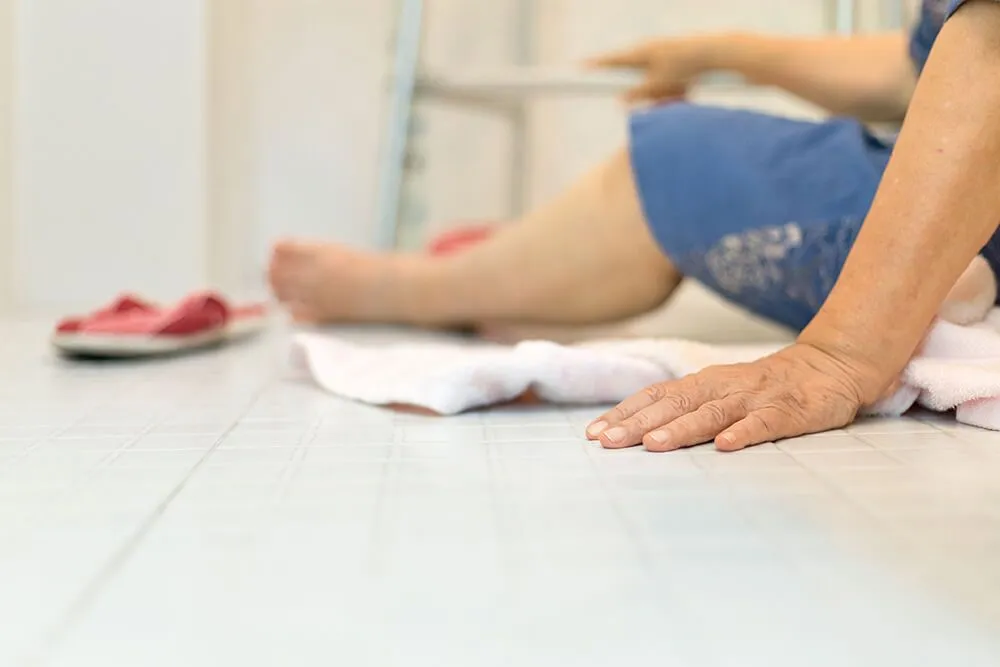An enjoyable night out for dinner or a casual stroll through a store can quickly take a turn for the worse with an unexpected injury. But when misfortune strikes on someone else’s property, what should you do?
- Seek Immediate Medical Attention
Before doing anything else, make sure you seek out immediate medical attention. The difference between acting immediately and waiting an hour or two can prove to be incredibly detrimental and costly (health-wise and financially).
Some injuries might not be immediately apparent. The flow of adrenaline can easily mask pain, discomfort, and other symptoms that might emerge later. Quick and thorough medical attention can identify the possibility of these hidden injuries and put you in a better position for a fast and full recovery.
But there’s also the legal component. In personal injury cases, insurance companies and legal entities may scrutinize the timing of seeking medical care. Prompt attention demonstrates the seriousness of your injuries and your commitment to addressing them. It also establishes medical records and reports, which provide concrete evidence of the injury’s cause, extent, and the treatment received. This documentation is crucial for substantiating your claim.
- Document the Scene
Assuming you’re well enough to do so, you’ll want to document the scene of the injury as soon as possible. One way to do this is by pulling out your phone and taking photos or videos of the scene. This includes images of the surrounding area and your injuries. The more thorough you are, the better.
In addition to having photos, videos, and medical records, you’ll also want to gather statements from as many witnesses as you can. These statements can help corroborate your version of events.
- Understand Liability
Not every injury can be blamed on someone else. Sometimes you hurt yourself and that’s that. Other times, your injury falls under the heading of liability.
To understand premises liability, you have to understand the legal definition of “duty of care.” In the United States, each person has a duty to act in a reasonable manner to prevent causing an injury to someone else. If a person fails to meet this duty, they can be held liable for the injury that their actions may have caused.
“In a personal injury case involving a motor vehicle, every driver has a duty to follow traffic laws to avoid accidents and keep others safe,” FindLaw.com explains. “For instance, motorists are expected to obey traffic signals such as a red light. If a driver fails to stop at a red light, they have not adhered to their duty of care.”
Issues with liability can arise in numerous situations and environments, including medical offices, retail stores, private property, schools, and anywhere in between.
- Consult With Legal Experts
How do you know if your injury was a direct result of someone else’s breach of their duty of care? You can speculate all you want, but you really need to get a legal expert, such as a personal injury attorney, involved.
“Your attorney can establish these factors through various pieces of evidence, such as testimony from medical experts, your doctors, your friends, and your family,” attorney Mickey Keenan points out. “They will also use medical records and possibly an accident reconstructionist to prove their points.”
The key is to find an experienced attorney who understands your case and connects well with you. Most attorneys operate on a contingency-fee basis, which means they only get paid if/when you get paid. So don’t be afraid to hire a good attorney.
- Communicate With the Property Owner
After seeking medical attention and documenting the scene, it’s crucial to initiate communication with the property owner or occupier. Timely notification serves several essential purposes:
- Safety and Preventative Measures: Alerting the property owner about the incident can prompt them to take immediate action to correct hazards or dangerous conditions, preventing further accidents and injuries for others.
- Documentation: Reporting the incident to the property owner creates an official record of the event. This record can be essential for both parties, as it acknowledges that an incident occurred on their premises.
- Responsibility: Notifying the property owner holds them accountable for the safety of their premises. It also provides them with an opportunity to address the situation and potentially rectify any issues that contributed to the incident.
Putting it All Together
There’s nothing easy about suffering an injury – particularly when there’s someone else tied up in the situation. Part of you might not want to ruffle any feathers or involve another person. But then there’s the part of you that needs something to happen in order to cover all of the bills and pain you’ve been through.
Navigating the tension between these ideas can prove challenging but is entirely necessary. Hopefully, the tips outlined above guide you on how to respond.

Leave a Reply